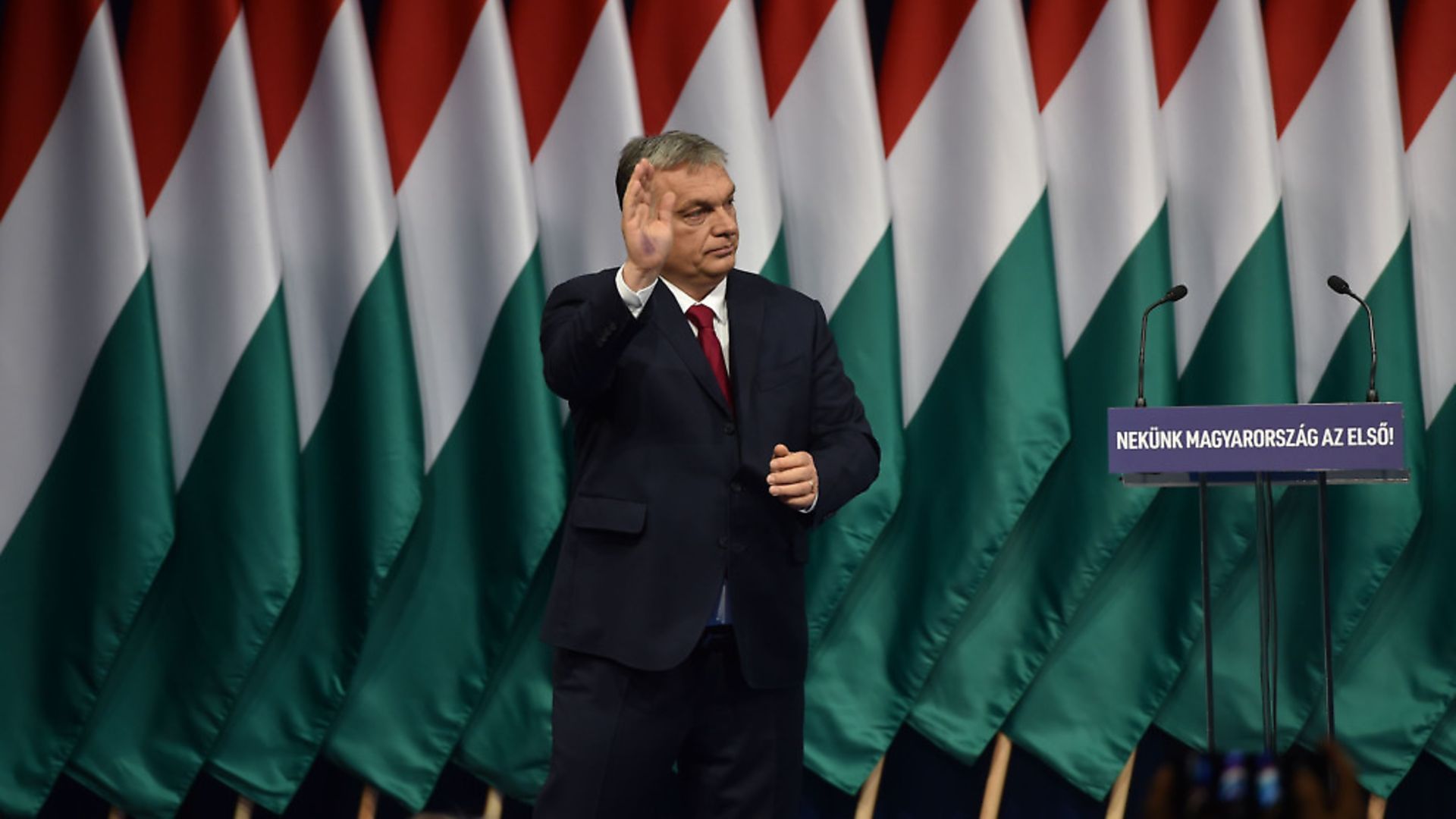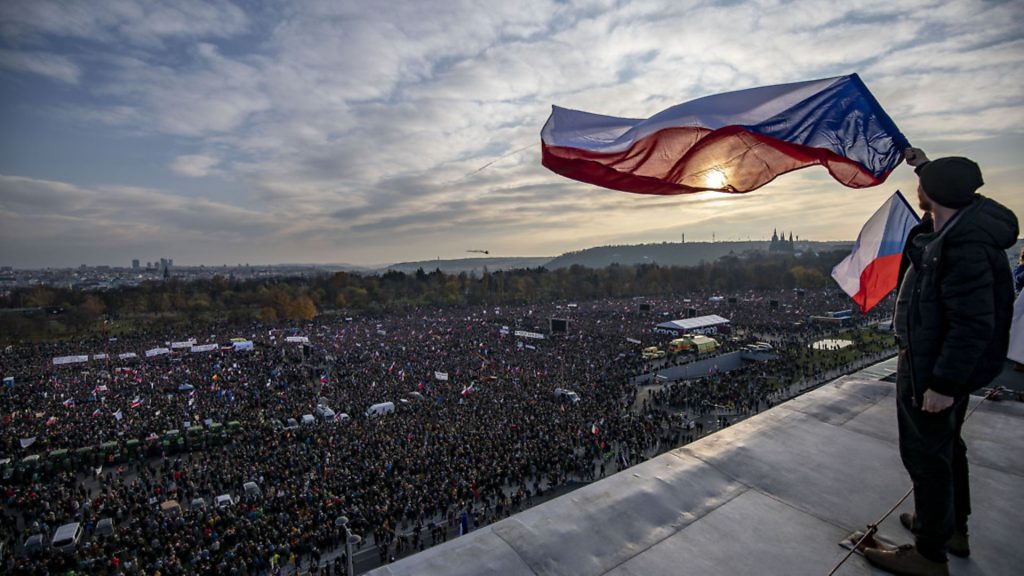
Brexit has prompted a rebalancing of the EU and enhanced the influence of Central European states, raising difficult questions about where it goes next, JOHN KAMPFNER reports.

On the first working day after Brexit where did Europe’s most powerful man head off to? The French president paid homage to his Polish counterpart, in a sign that the European Union is already realigning, and not to the taste of the faint-hearted.
One of the many regrets of the UK’s departure is that a project designed not only to bind the continent together, but also to embed a post-1945 settlement to a better world, is edging ever closer into the hands of countries whose elites have refused to make the transition from communism into liberal democracy.
Poland, Hungary and the Czech Republic are leading the charge back to authoritarianism. Their governments see Brexit in large part as a vindication of their positions – closed borders, tougher on immigration, populist nationalism, cronyism and curbs on civil liberties and freedom of expression. Indeed, they see it as encouragement to go further.
The departure of Britain removes from the equation a defender in international institutions of liberal norms. Of course, much of the rhetoric didn’t translate into practice. But many in Europe, especially in the old Warsaw Pact, revered Margaret Thatcher for taking a hard line and encouraging Mikhail Gorbachev to press ahead with reforms in the 1990s.
This was followed by John Major helping to push through the enlargement of Nato and the EU. That was the era of Francis Fukuyama, his End of History thesis and an expectation that liberal democracy had entered a perpetual upward curve.
Now Britain has flipped to the other side of the culture war and is being feted by Central European leaders for exactly the opposite reasons. For the past decade the most visible and unabashed champion of the nationalist-populist cause has been Viktor Orban. Once a standard bearer in the fight against the communist regime, he has won three elections as prime minister. With each he has rolled back basic tenets of democracy such as the independence of the judiciary and freedom of the media.
He has now been gazumped by Poland’s Law and Justice Party government. Recently president Andrzej Duda signed into law the so-called “muzzle law”, which makes it illegal for the country’s judges to openly question the government’s judicial appointments and reforms. Boris Johnson’s attacks on the BBC and the Supreme Court have not gone unnoticed.
His Rottweiler adviser Dominic Cummings is attracting star billing in pro-government media in Central Europe, a status until recently reserved for the likes of Steve Bannon. If a country such as the UK is openly embracing such ideas, the argument goes in Budapest and Warsaw, then why the criticism directed at us?
The picture across the former Soviet states is not uniform, however. Last November in Prague, 250,000 people gathered not to celebrate the Velvet Revolution but to demand the resignation of the populist prime minister. Billionaire Andrej Babis, a media magnate and former communist who hates being called the Czech Trump, was recently investigated for fraud. No charges were brought, but he is having to tread a little more carefully. In Romania, the government has been embroiled in corruption allegations. Last year, Slovaks were shocked by a gangland-style murder of a journalist investigating corruption. The resulting election of an environmentalist campaigner, Zuzana Caputova, has tempered the right-wing ambitions of the government. Much rides on parliamentary elections coming up at the end of this month.
In one area these populist-nationalist governments are divided; on another they are surprisingly united. In the former case, some (Hungary, Czech Republic) are staunchly pro-Moscow, desperate to ingratiate themselves with Vladimir Putin; others are sceptical or hostile such as the Poles.
Brexit has, for all its negative influence, produced one positive outcome in Central and Eastern Europe. Now, not even the most hostile of hostiles would contemplate quitting the European Union thanks to the British debacle. They are in it for the long haul – which is both good and bad news for the established members.
In European institutions their clarion calls against immigration are beginning to stick. Member states are finding ever more inventive reasons for failing to fulfil their obligations towards freedom of movement. In important budget negotiations on February 20, the Central Europeans, alongside the spendthrift south, will resist attempts by the wealthier nations – Germany, France, the Netherlands and the Nordics – to rebalance contributions between donor and recipient nations to make up the shortfall from the UK’s contribution. Such defiance will prove popular domestically.
Yet the first signs are emerging of a liberal fightback, seeking to rekindle and harness enthusiasm for the European ideals of free movement and liberalism. It is being led by the leaderships of the capital cities. Last October, Gergely Karácsony, whose campaign had a distinctly green and multi-cultural message, won mayoral elections in Budapest, defeating the candidate backed by Orban and his huge state media machine.
Karacsony’s success was replicated elsewhere. Candidates endorsed by an alliance of opposition parties triumphed in 14 of Budapest’s 23 districts – a stunning reversal of the previous result in 2014. A similar pattern was evident in the provinces, particularly in the larger towns.
In December, the mayors of Budapest, Warsaw, Prague and Bratislava joined forces to form a ‘Pact of Free Cities’. Their joint statement promised to promote the “common values of freedom, human dignity, democracy, equality, rule of law, social justice, tolerance and cultural diversity”.
The signing event was held at the symbolic venue of George Soros’s Central European University in Budapest, which has been forced by Orbán’s government to move much of its operations to Vienna.
The three mayors reminded their voters: “The resilience and courage of self-organising communities resulted in the collapse of the Berlin Wall three decades ago. The shipbuilders and steelworkers of the Polish Solidarity? movement of 1980, the freedom fighters on the streets of Budapest in 1956, and of Prague and Bratislava in 1968, ultimately triumphed.” The ideological battle is over the future direction of these countries, but also over the interpretation of the past. Was the fight against communism to give countries self-determination, as defined in a narrow nationalist way? Or was it to embrace a common European home?
There are signs that the mayoral alliance is beginning to unnerve the authoritarian central governments. Hungary’s ruling coalition approved legislation a few weeks ago restricting the power of municipalities in parliament. As a result, the municipalities are appealing to Brussels to allocate funds directly to their municipal budgets.
No matter which way the Central Europeans turn politically in coming years – and any optimism should be guarded – geo-strategically they will play an ever more dominant role in the EU.
While Germany and France were always the motor, and will remain so, there was always place for a third country on major international issues. That role was played by the UK. Now Poland is vying for that slot. During the Ukrainian revolution of 2014, Germany, France and Poland drove the negotiations, a troika that was seen as a prototype for a future arrangement.
That is why Macron is making a beeline for a country and a region in which he had previously shown little interest or affinity. That is why he, Angela Merkel and whoever succeeds her as German chancellor are likely to temper their criticism of infringements on liberal norms in these countries. That is why Johnson and his crowd will be even more pleased with their handiwork.









